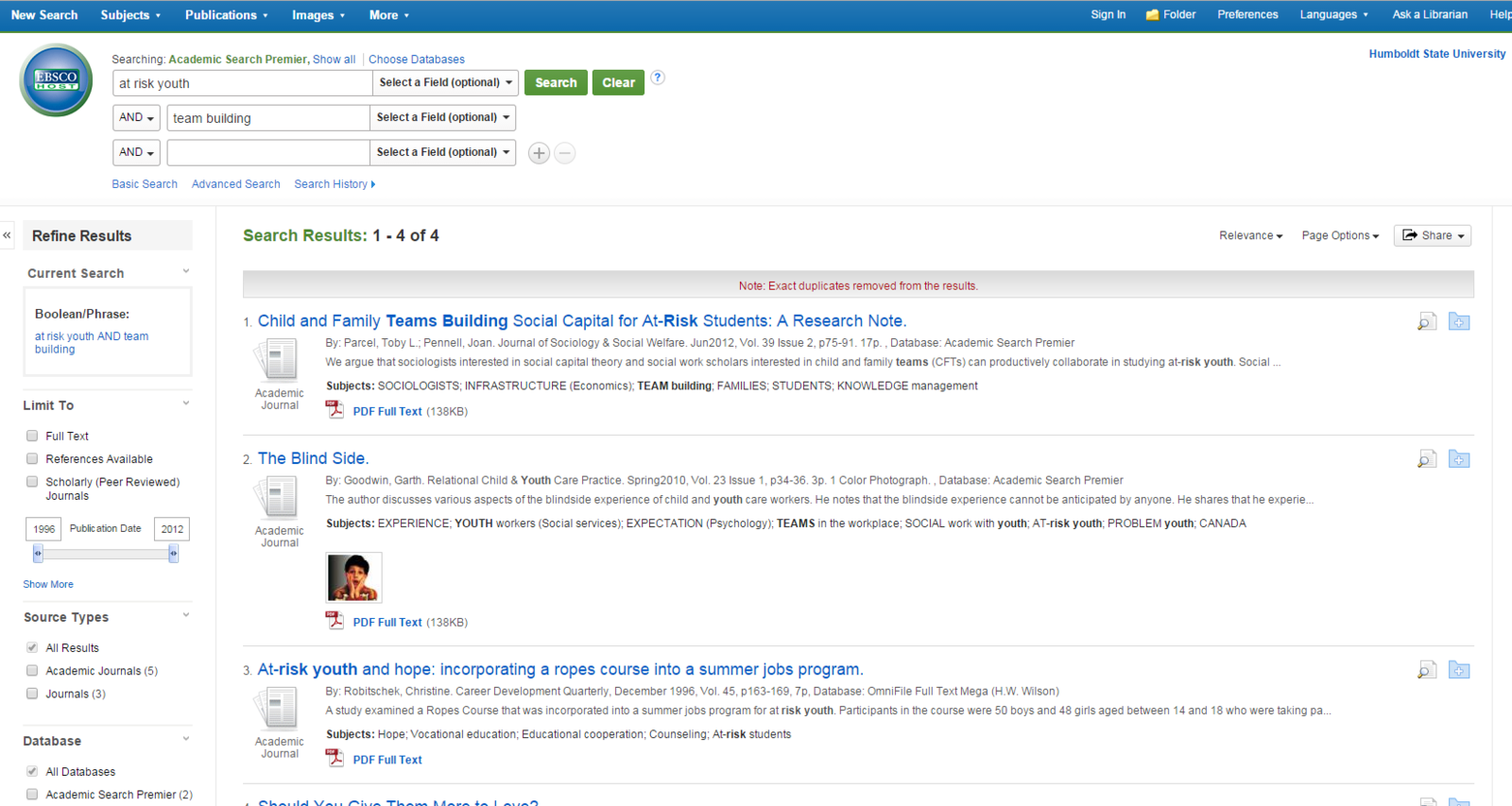Finding & Reading
Scholarly Articles
Tim Miller | twm2@humboldt.edu | 826.4959 | Library 02
Goals
- What does 'scholarly' mean?
- How can we find scholarly articles?
- What is the best way to read & understand these articles?
What does 'scholarly' mean?
- Written by experts- usually academics or professionals
- Often peer-reviewed (reviewed for reliability by other experts in the field)
- Reflect research (study, literature review, observations)
- Written in a systematic and scientific manner
Scholarly articles
can be...
-
'Authoritative'
- scholars or researchers in the field
- technical terms and concepts
- peer-reviewed
- Include statistics, graphs, tables
-
Refer to past research
- points of reference
- new areas to explore
Finding scholarly articles
- Databases
- filters limit to
- peer-review
- scholarly
- filters limit to
- Identifying scholarly articles:
- plain format
- written for readers familiar with the field
- large number of citations & references
- structured: abstract, introduction, methods, results, discussion, conclusion, references
- little or no advertising
Finding scholarly Articles
Finding scholarly Articles
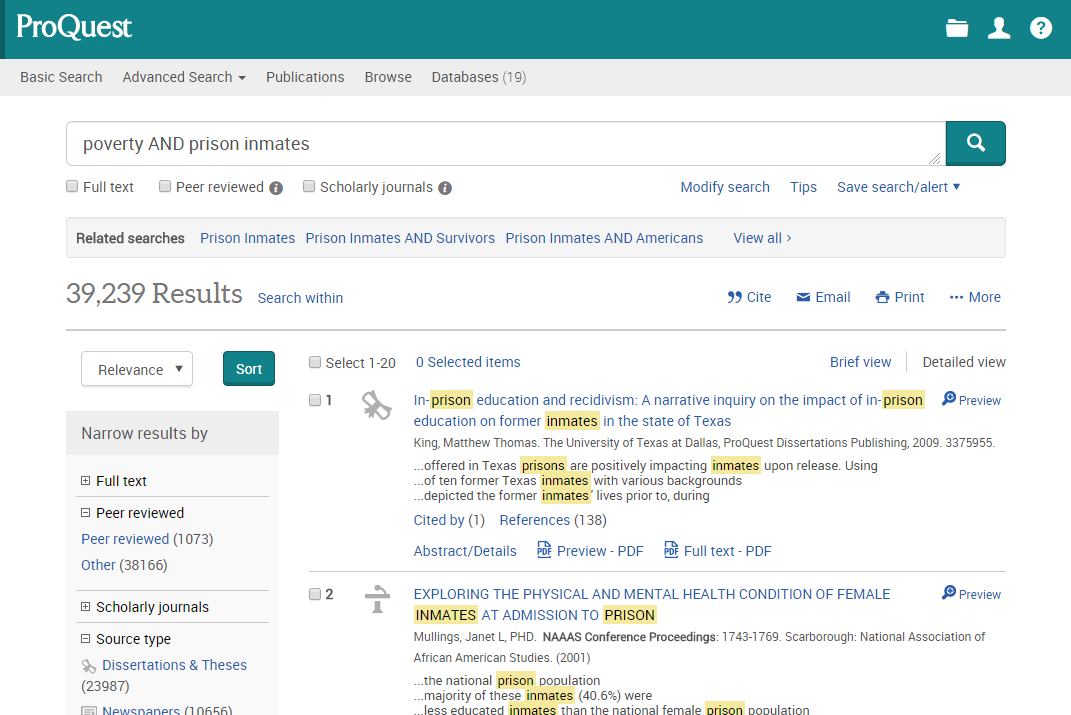
Reading scholarly Articles
Think about the author(s)
- Tips before you begin reading the article:
- Who is the author - what is their hypothesis/view?
- What does the abstract indicate?
- Purpose
- Methods
- Conclusions
Reading scholarly Articles
Think about your needs
- Tips before you begin reading the article:
- What do you need from the article?
- What is the purpose of your paper/presentation?
- Evidence
- Background information
- Support your hypothesis/view
- Recommendations
- Conclusions
Structure of a scholarly Article
Abstract (Summary)
Methods (What the author did)
Results (What the author found)
Discussion (What the results mean)
Conclusion (the implications)
References (What the author read)
Reading
Skip around
You do not need to read EVERYTHING
Read what applies to your topic
Look for useful content
Ideas that you might cite
Specifics to help you narrow your topic
Reading
Look for topic sentences
Skim for key sentences that appear at the beginning and end of paragraphs
Take notes
Save the citations when you find the article
Highlight sections
Write down notes - with page #s and article info
Abstract
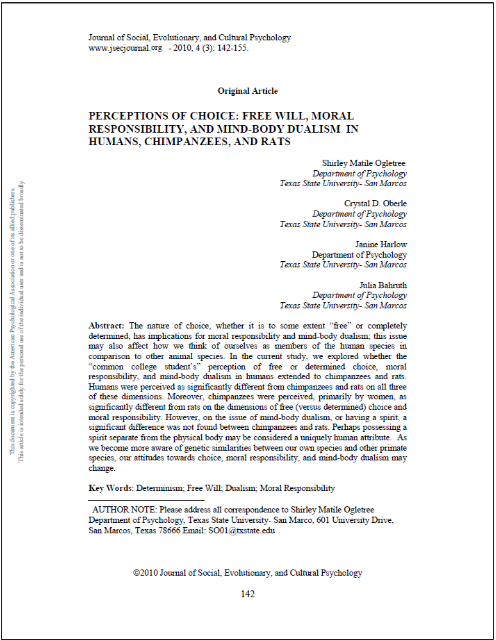
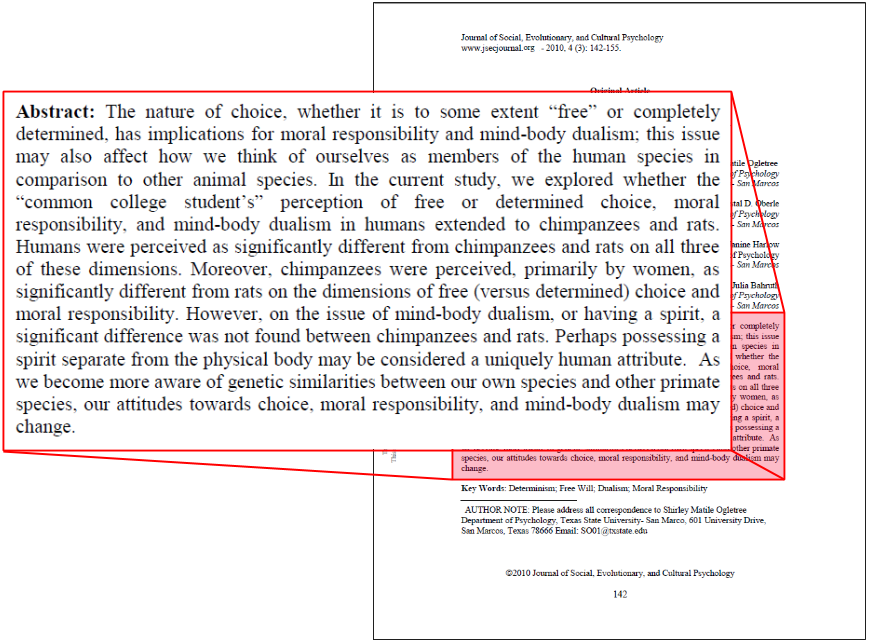
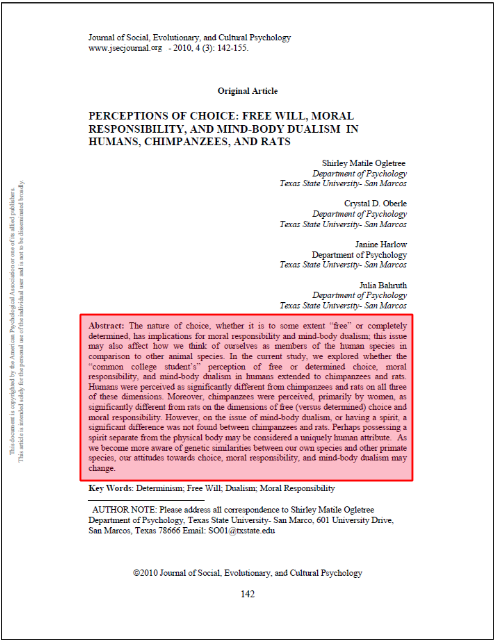
Introduction
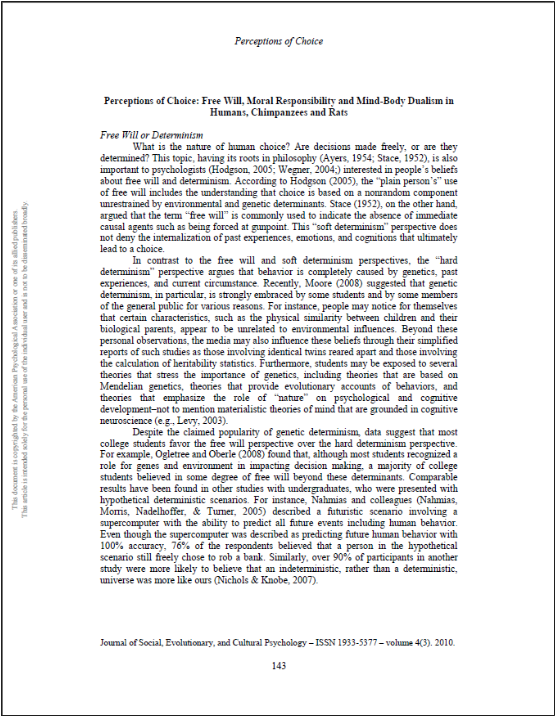
Free Will or Determinism
Citations: Stace (1952)
Background information will include references to earlier works
Look for:
- 'Introduction'
- Headings by subject
Discussion/Conclusion
Discussion
Analysis
Look for:
- 'Discussion'
- 'Conclusion'
implications of results
comparison to past research
recommendations
future considerations
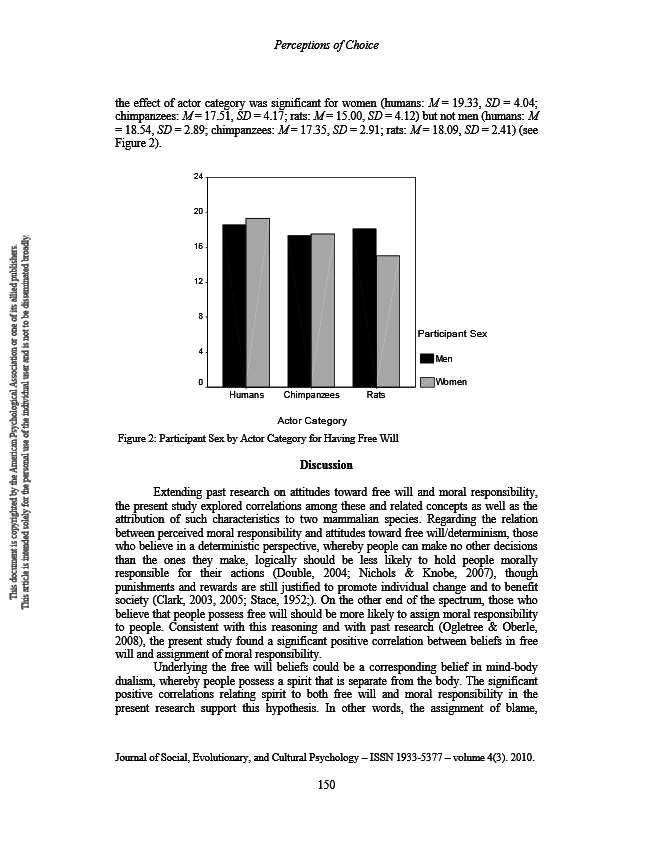
Methods
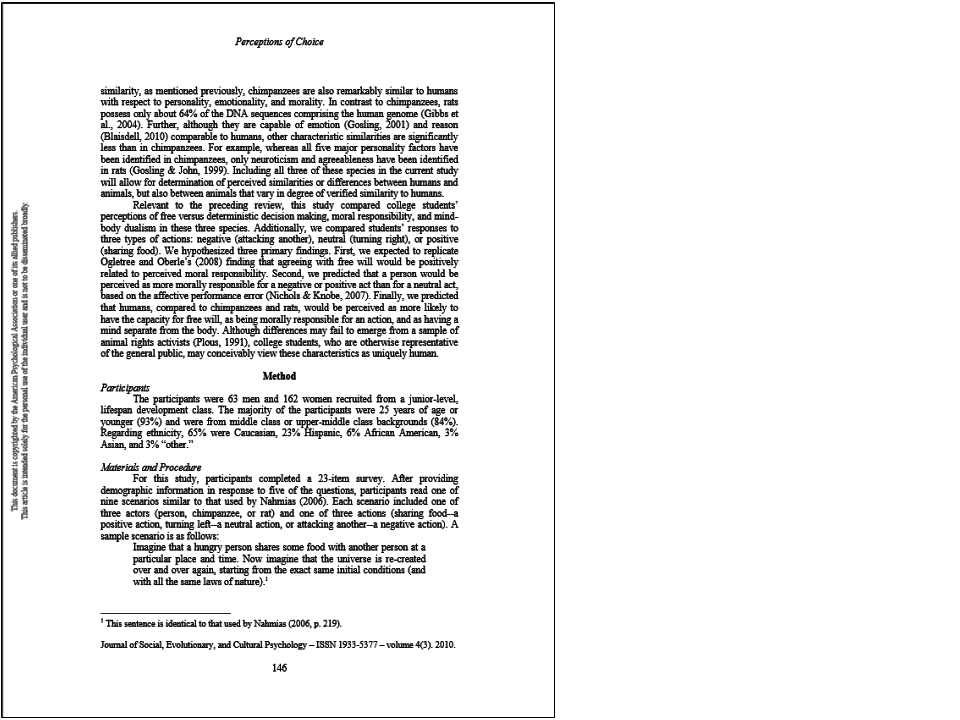
Method
Participants
Materials and Procedure
Look for:
- 'Methods'
- Procedures
Who was being studied?
How were they selected?
What was the intervention?
What did they measure?
Results
Results
Statistics
Data
Look for:
- 'Results'
p values
statistical significance
tables & graphs
Little commentary
Report of data
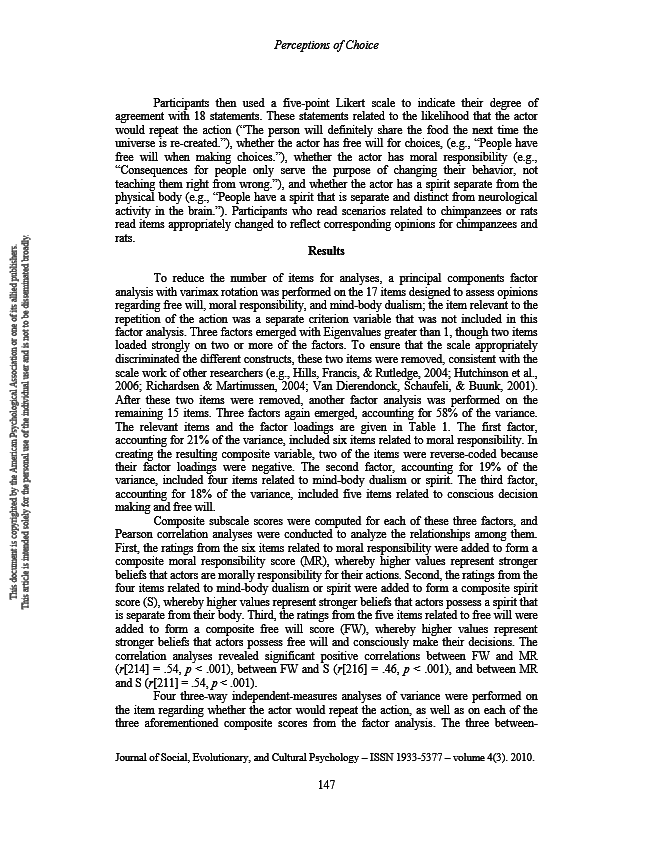
Try it out
In pairs
First section:
- Purpose of article
- Overall conclusions/ results
Second section:
- Findings/conclusion
- Recommendations/ future considerations
Can't find it? Share:
- what you found confusing
- what you were expecting to see
Writing
Quote - Exact Language
Enclose in quotation marks
Cite the source (in-text, reference list)
Paraphrase - Your own words
Use significantly different language
Cite the source (in-text, reference list)
Writing
Avoid Plagiarism
Cite every idea you get from someone else
Use quotation marks with quotes
Make your paraphrasing significantly different from the original author's words
Finding & Reading Scholarly Articles
By Tim Miller
Finding & Reading Scholarly Articles
- 1,718

